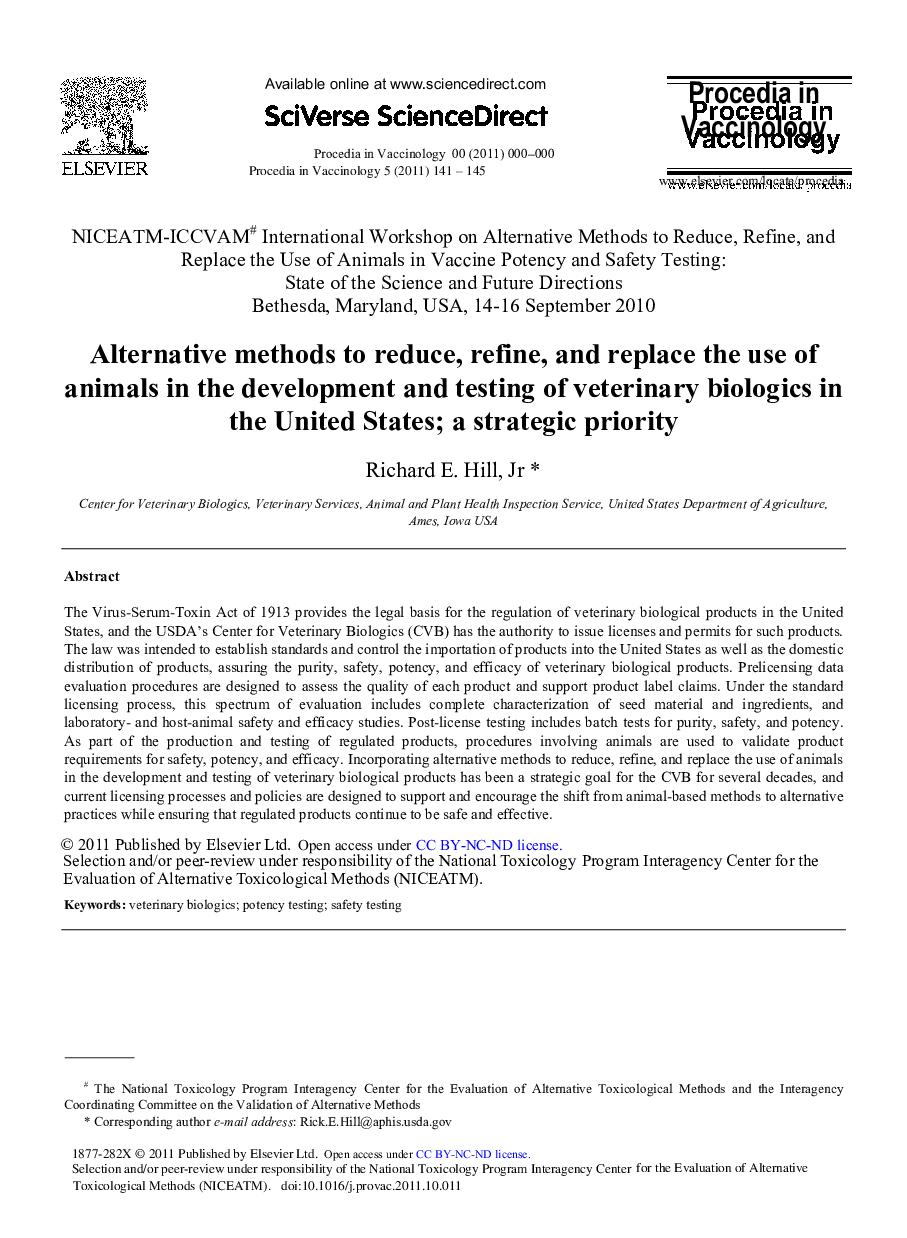| Article ID | Journal | Published Year | Pages | File Type |
|---|---|---|---|---|
| 2473716 | Procedia in Vaccinology | 2011 | 5 Pages |
The Virus-Serum-Toxin Act of 1913 provides the legal basis for the regulation of veterinary biological products in the United States, and the USDA's Center for Veterinary Biologics (CVB) has the authority to issue licenses and permits for such products. The law was intended to establish standards and control the importation of products into the United States as well as the domestic distribution of products, assuring the purity, safety, potency, and efficacy of veterinary biological products. Prelicensing data evaluation procedures are designed to assess the quality of each product and support product label claims. Under the standard licensing process, this spectrum of evaluation includes complete characterization of seed material and ingredients, and laboratory- and host-animal safety and efficacy studies. Post-license testing includes batch tests for purity, safety, and potency. As part of the production and testing of regulated products, procedures involving animals are used to validate product requirements for safety, potency, and efficacy. Incorporating alternative methods to reduce, refine, and replace the use of animals in the development and testing of veterinary biological products has been a strategic goal for the CVB for several decades, and current licensing processes and policies are designed to support and encourage the shift from animal-based methods to alternative practices while ensuring that regulated products continue to be safe and effective.
